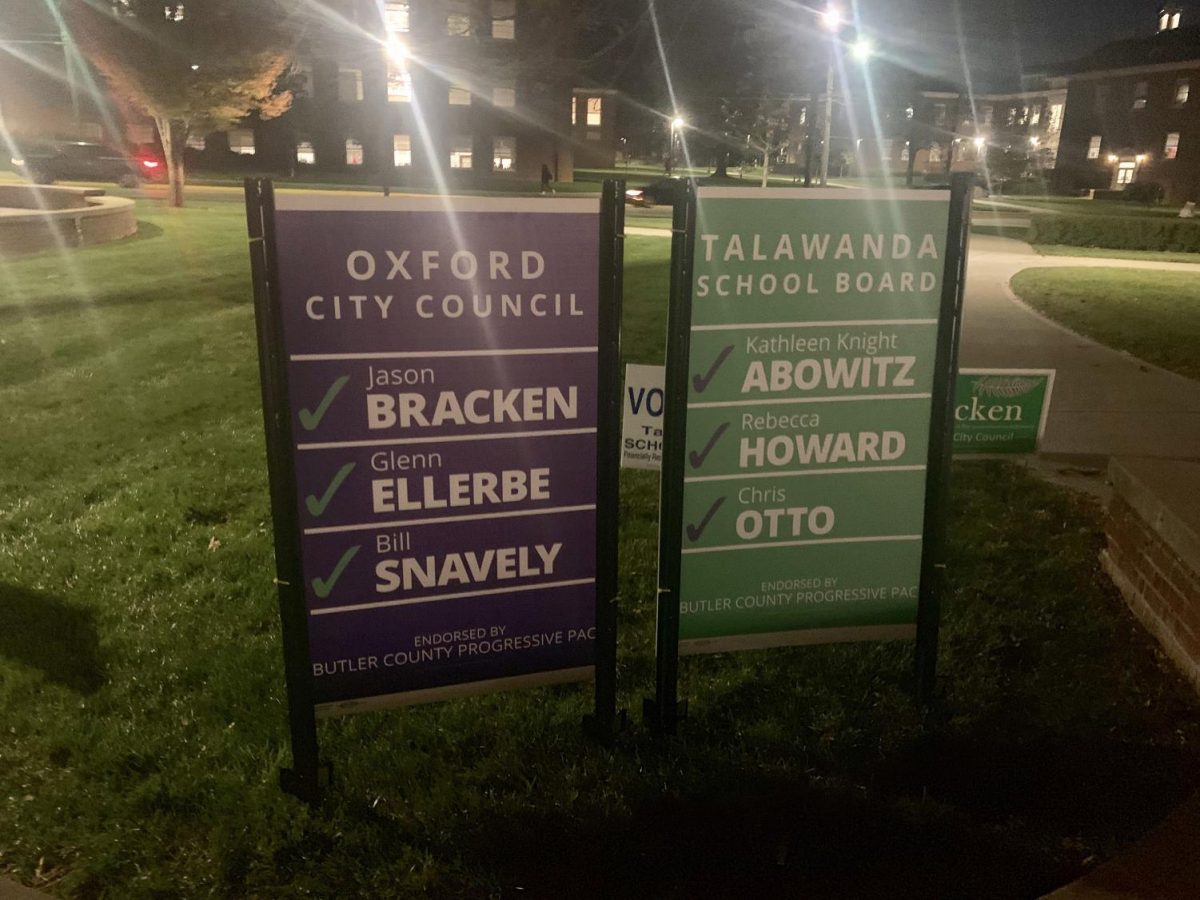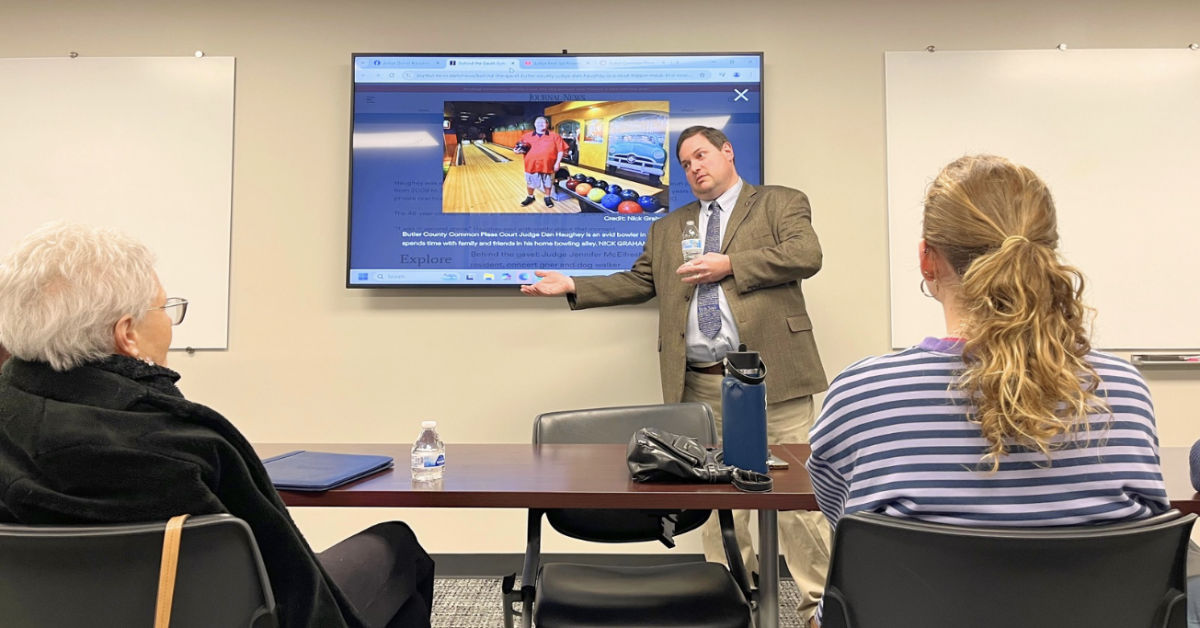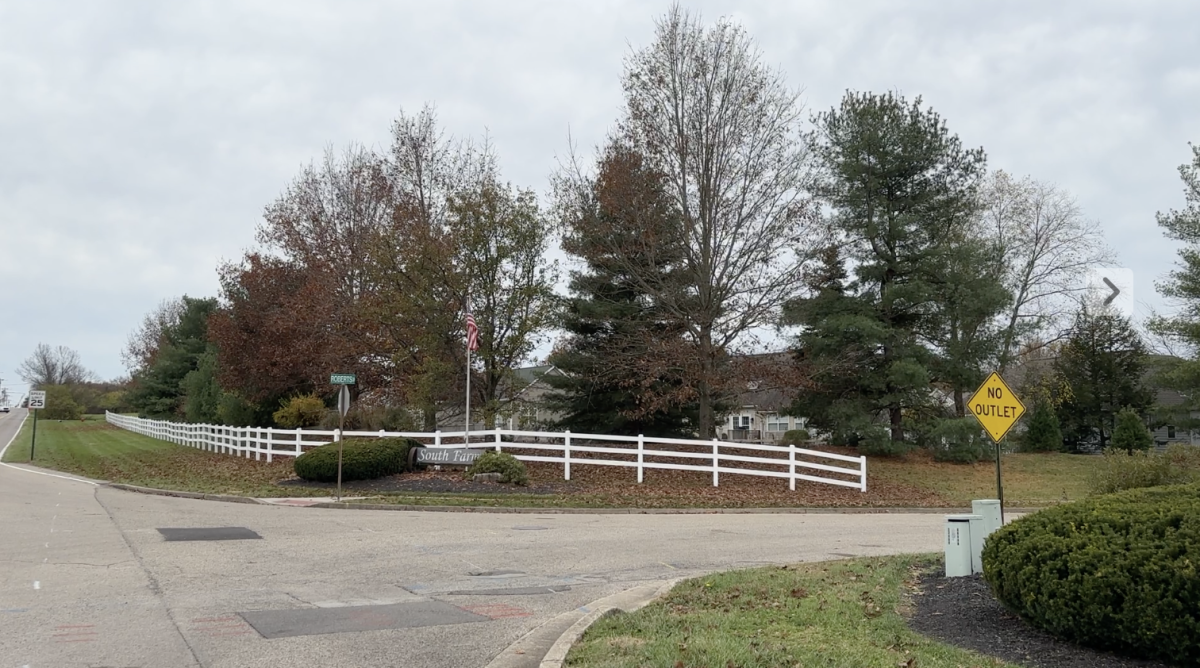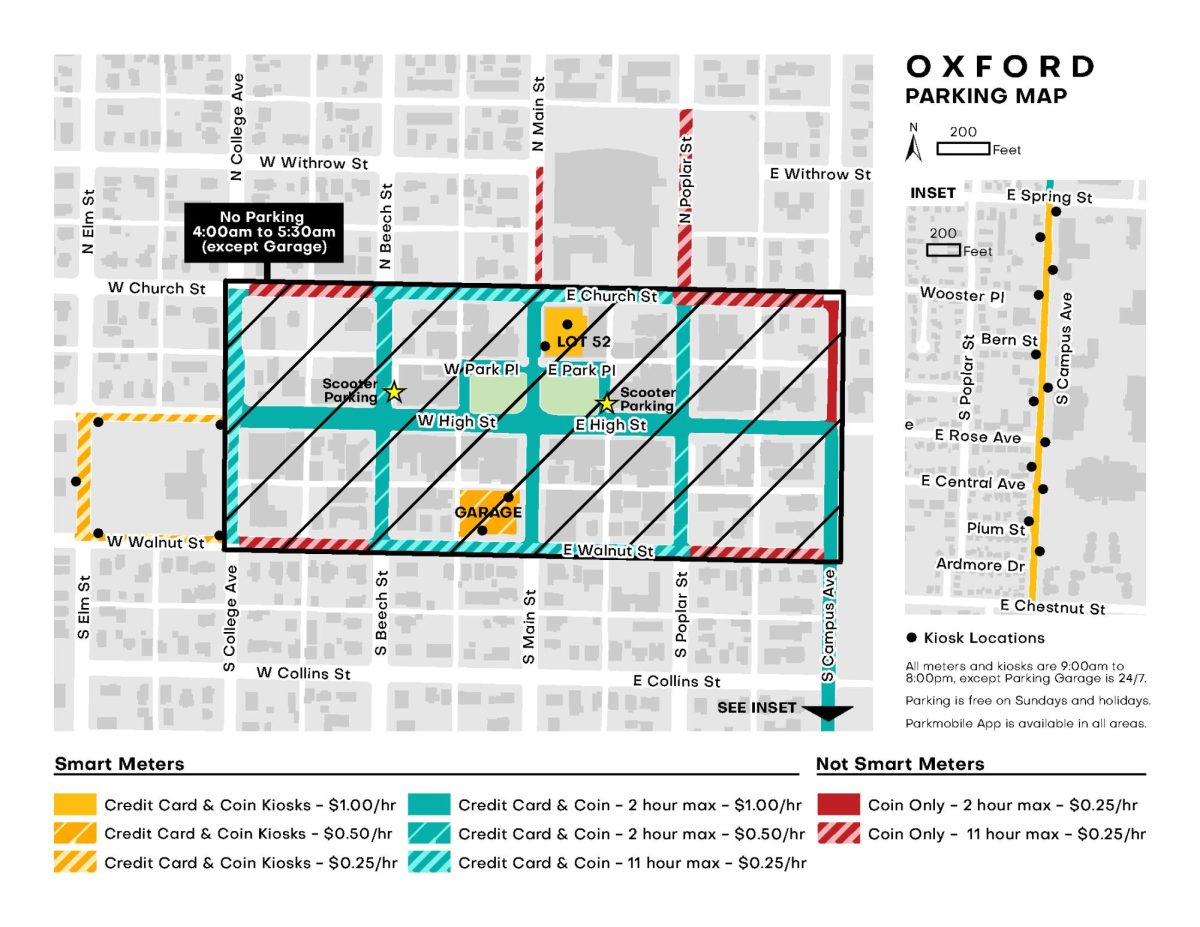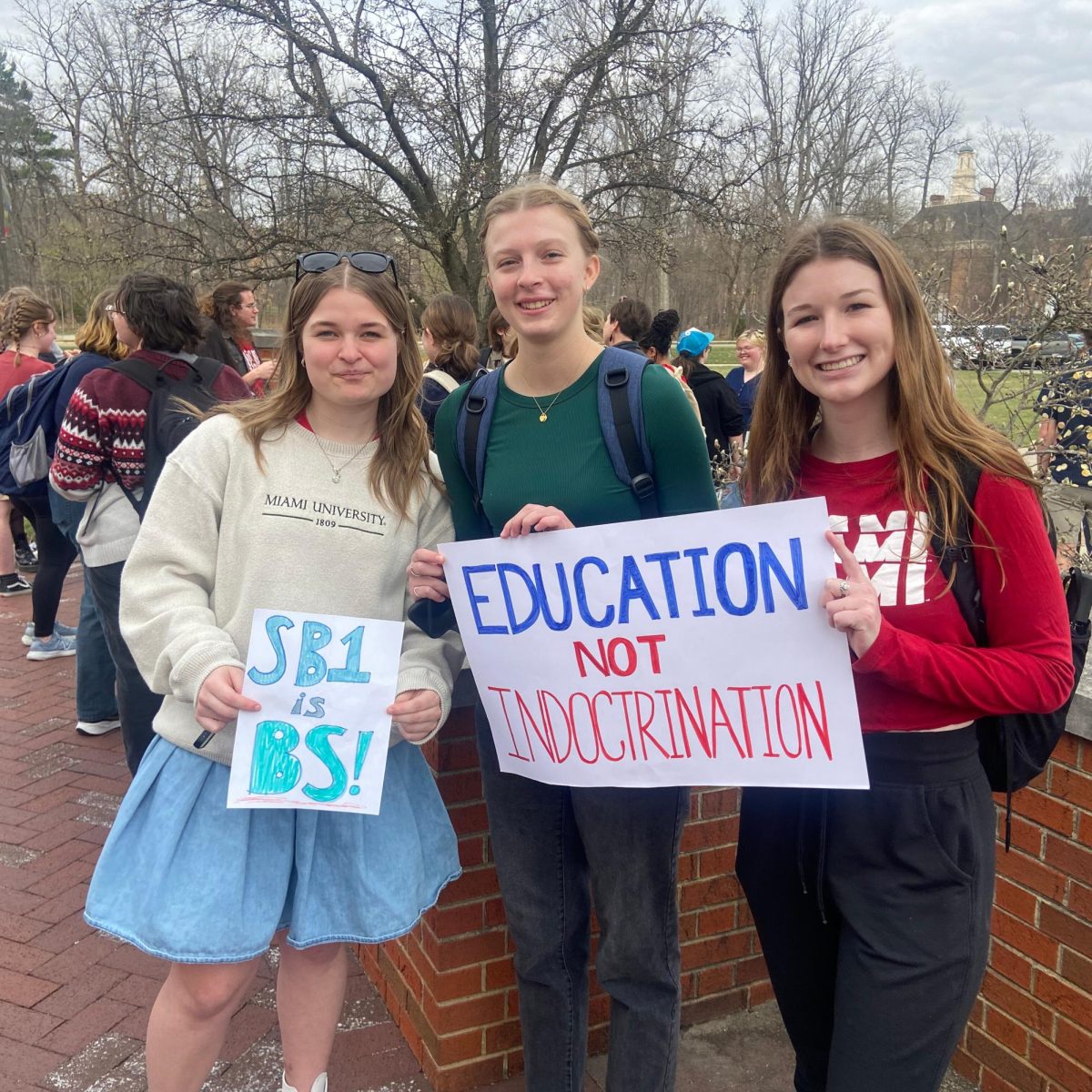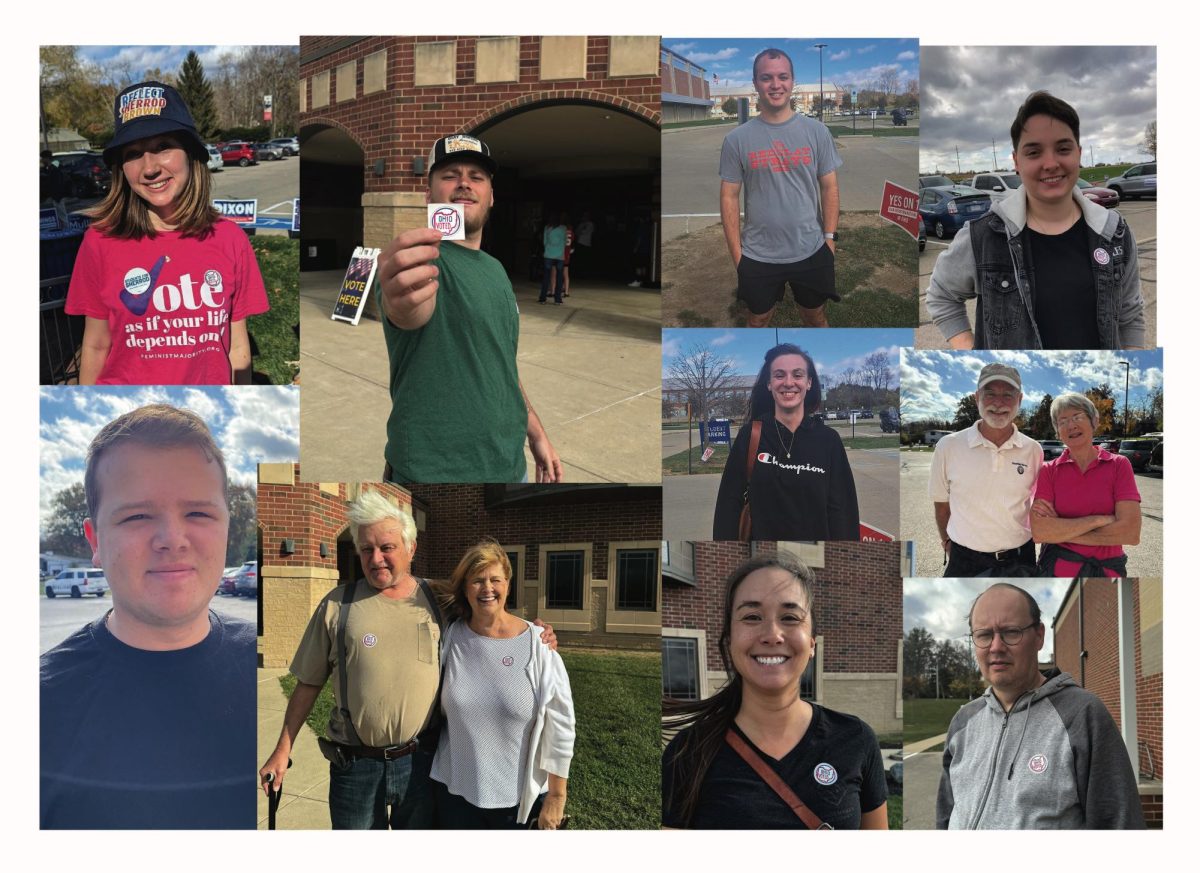The Butler County Progressive Political Action Committee (BCPPAC) is on a hot streak: It has made 10 endorsements in contested races across the last two local elections, and is 10 for 10 getting those candidates elected.
Some, however, are wary about the effect of partisan PACs on small town Oxford politics, where candidates are not allowed to affiliate with parties on ballots.
Councilor Glenn Ellerbe, re-elected to council last week, was endorsed by BCPPAC. Ellerbe now he has some reservations.
“I’m very thankful for the group and what it did for my campaign, but I’m concerned,” Ellerbe said.
Ellerbe accepted BCPPAC’s endorsement, but believed accepting a financial donation from them was a bridge too far.
“If you as a candidate take money, that is when I believe you now have completed a contract,” he said. “There’s an offer, there’s acceptance, (and) there’s commitment.”
In 2017, with four Oxford council seats up for grabs, BCPPAC endorsed four of nine candidates, and each of them won. In 2019, its three choices out of six candidates for the Talawanda Board of Education and its three choices from among five candidates for city council all won their races. According to all three of BCPPAC’s 2019 council endorsees, the PAC’s marketing — most notably its widespread use of yard signs featuring all three names — was a big factor in their election.
BCPPAC endorsed Ellerbe, Miami Ph.D. candidate Jason Bracken and former councilor and former mayor Bill Snavely for council. Snavely was the only one to accept a monetary donation, which BCPPAC treasurer Mike Ball said was $100. Ball said the PAC only gives donations to candidates that feel they need them.
“(BCPPAC) did make a donation to help with our signs,” Snavely said. “It wasn’t a major donation, but it was a pleasant donation, let’s put it that way.”
Ellerbe said he isn’t particularly concerned with the way things currently are: He’s worried about a slippery slope that Oxford politics could be at the top of.
“Now we have a whole council that was the result of the BCPPAC (endorsements), and I’ve been a beneficiary of that,” Ellerbe said. “But are they going to start requiring people to do certain things?”
Snavely said he could see things going wrong with PAC influence in Oxford, but that point hasn’t been reached yet.
“Here’s where it would begin to matter: If that organization would contact their previously endorsed candidates, and say, ‘we expect you to toe the line on XYZ,'” he said.
“They better darn well know, and I think they do, that my first priority is the citizens of Oxford,” Snavely said. “People know me pretty well, and they just know I wouldn’t put up with that.”
Don Daiker, past president and current spokesperson for BCPPAC, said the group endorses candidates with “progressive values,” and doesn’t ask endorsees to lean certain ways.
“We just ask them to do the best job they can. Once they’re elected they’re on their own. They’re free,” Daiker said. “We hope they do enough work where they’re re-elected.”
Snavely said he found the signs featuring all three of the council candidates endorsed by BCPPAC a bit unnerving, but he didn’t have any control over them.
“I don’t think that looked great, to be honest, with those big signs,” Snavely said.
He said another worry he’d have about PAC endorsements would be if a PAC endorsed candidates, and those candidates all endorsed each other, and were running as part of a slate. Snavely said he tried to make it clear that’s not what was happening on council.
“I made a big point on my Facebook campaign page and on (the Facebook group) Oxford Talks to say, ‘I’m not running as part of a slate,’ and it looked that way with those big signs.”
Additionally, Ellerbe said he is worried the vitriol that has characterized national politics in recent times could trickle down to Oxford.
“I believe that, especially because of the current political climate on a national level, that partisan politics can be unhealthy,” he said. “And when that filters down to a local level, which is supposed to be a pure thing, you could get toxicity at high levels, and that’s scary.”
“I’ve seen it in higher level politics, and that’s why I’m kind of nervous about my town,” he said.
Ellerbe said he doesn’t think legislation is necessary yet, because there’s yet to be a “catastrophe” stemming from endorsements by partisan groups.
According to Snavely, who previously served terms on council during the late-’80s through the early 2000s, there has been some PAC influence in Oxford in the past.
“The (Butler County) Democratic and Republican parties occasionally have interviewed and endorsed candidates, as well as The Fraternal Order of Police,” he said.
Snavely noted that he and Bracken also had been endorsed by the Butler County Democrats for last week’s election.
According to Daiker, BCPPAC’s executive board met with and interviewed each of the five council candidates. They allowed each candidate to make a three to four minute statement, and then moved on to general campaign questions such as what a candidate’s platform was, what he hoped to do if elected, etc.
The executive board also asked if candidates considered themselves progressives, Daiker said. A big part of that, with regards to city council, is sustainability, which the current council has identified as the city’s number one strategic goal.
“It’s certainly one of the most important areas, especially with the emphasis on climate change,” Daiker said. “I think every candidate we have endorsed believes in climate change and believes we human beings are causing it, and therefore can do something about.”
Daiker said “progressive values” mean other things, too.
“We’re looking for people who value (racial) diversity, respect women’s reproductive rights, who are against voter suppression, who want as many people as possible to vote, and generally, how they (candidates) conduct themselves.”
Daiker was quick to admit abortion funding was not city council’s purview, but said he believes developers setting aside units for affordable housing, which can be negotiated with city council, could address BCPPAC’s goal of increased racial diversity.


